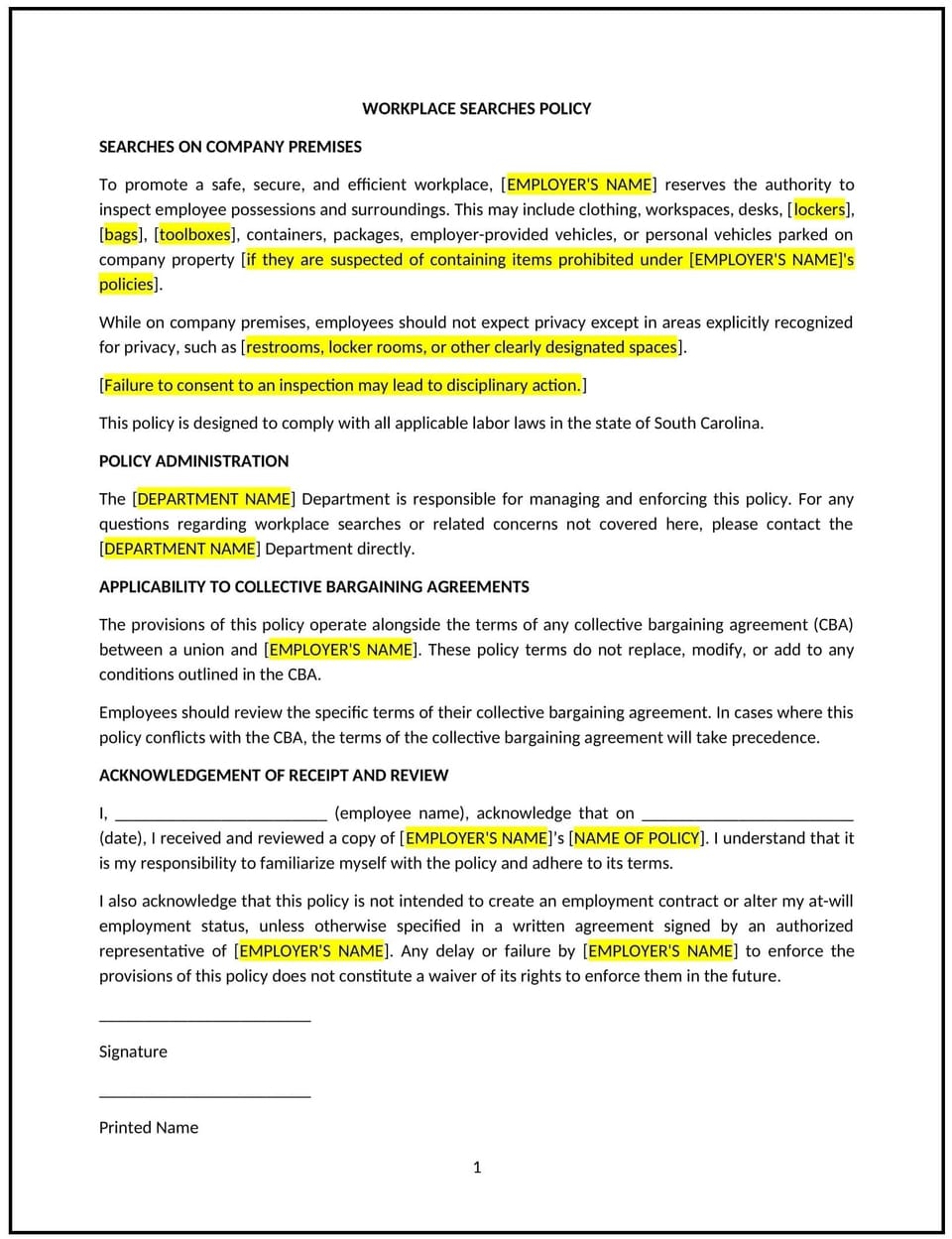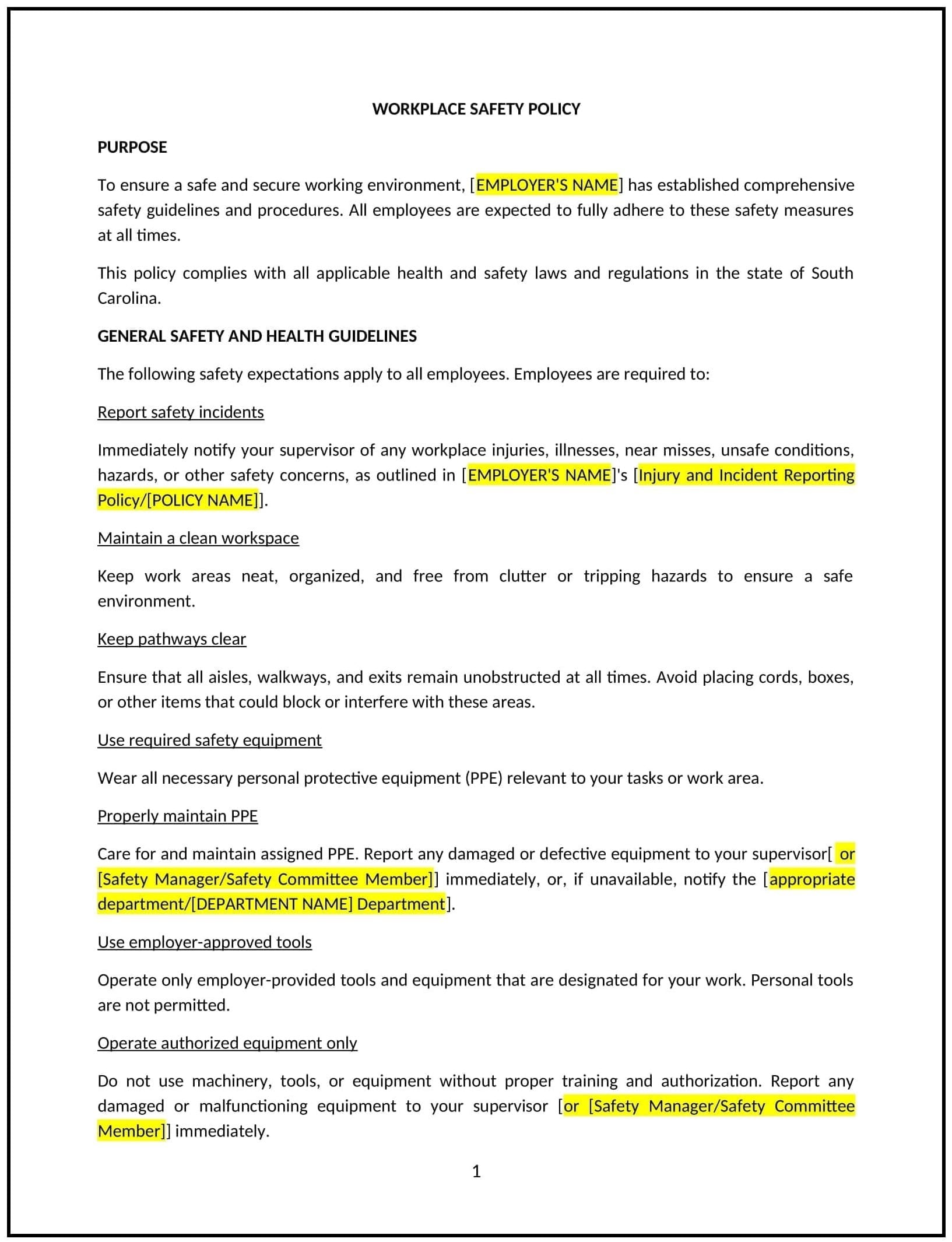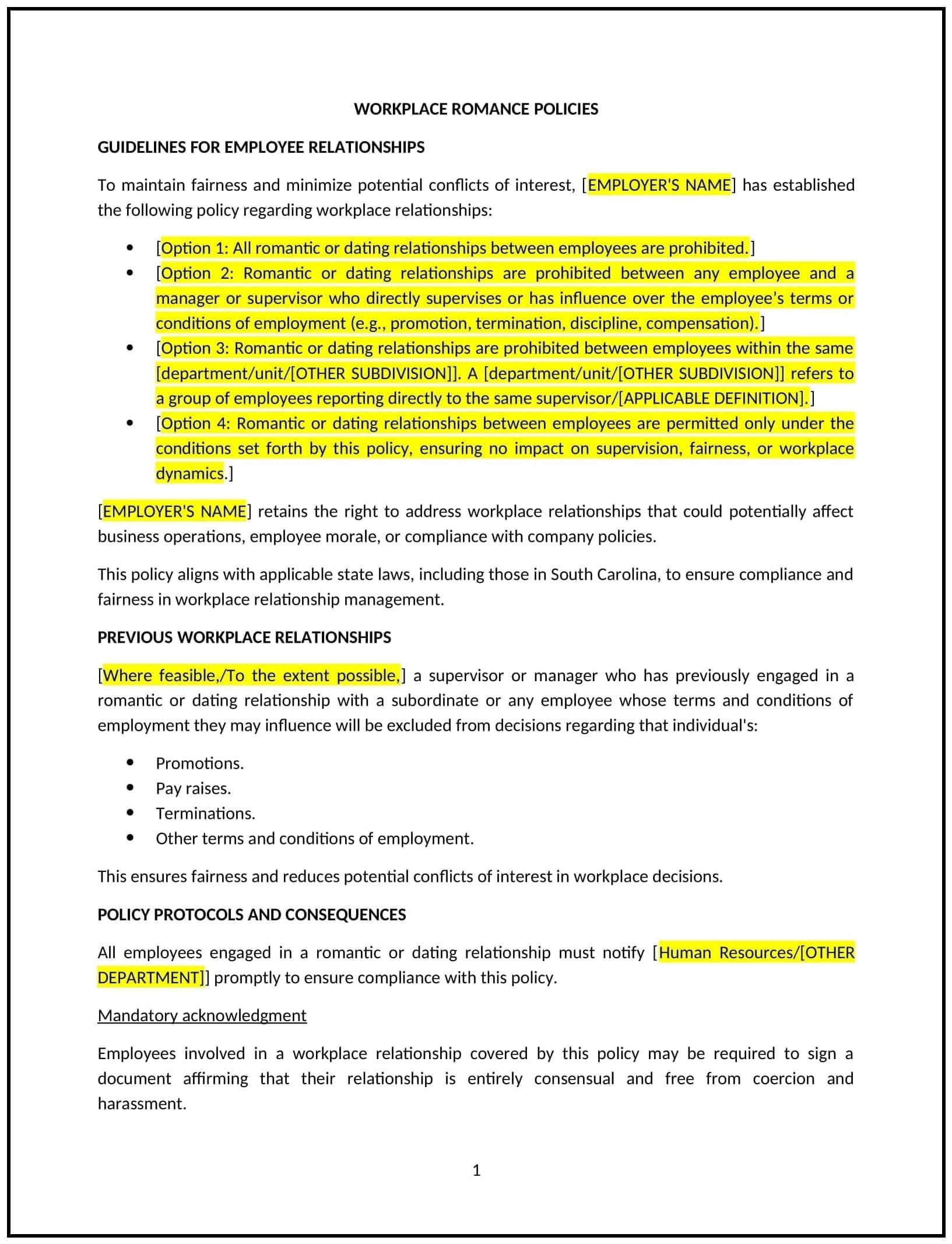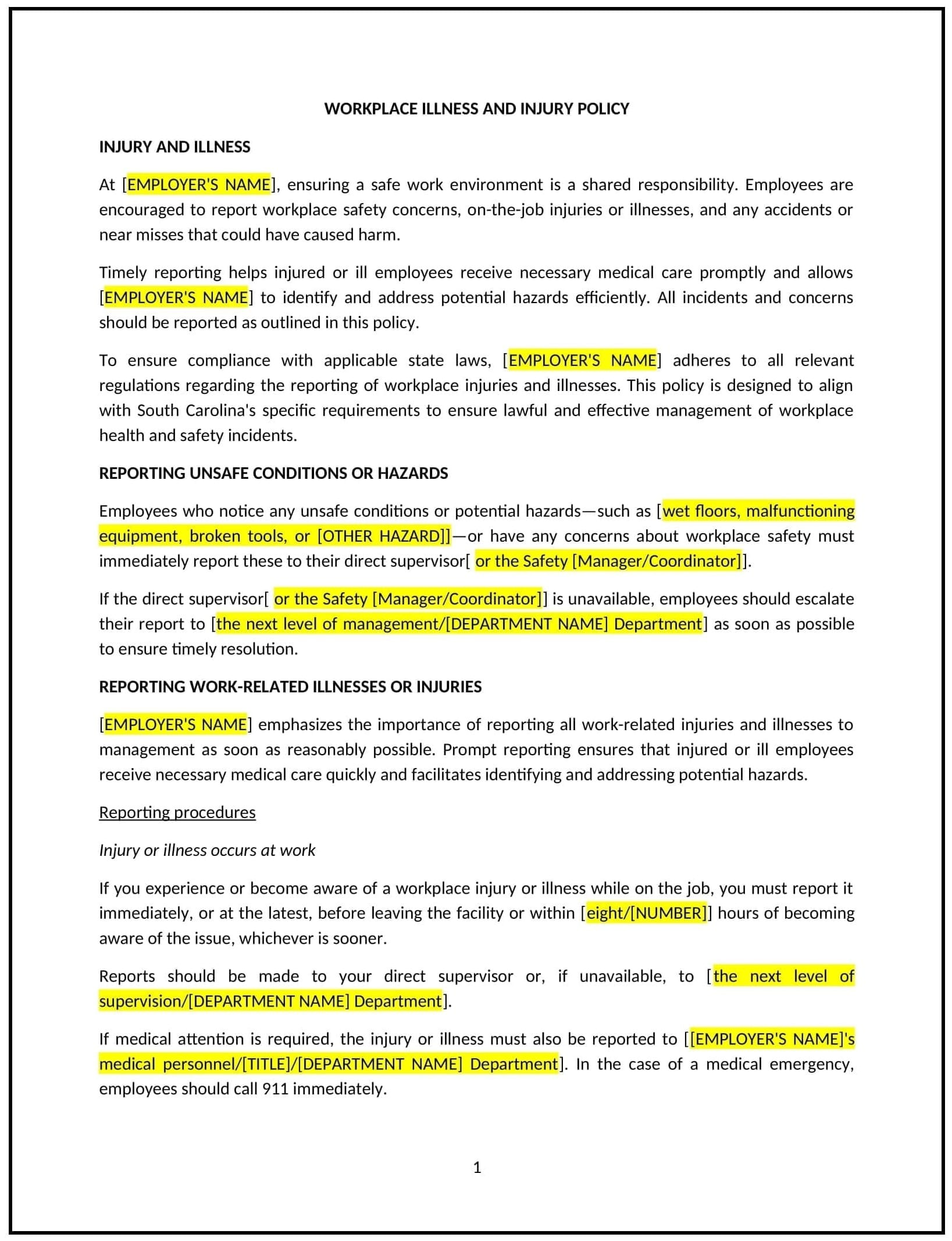Workplace searches policy (South Carolina): Free template

Workplace searches policy (South Carolina)
This workplace searches policy is designed to help South Carolina businesses establish guidelines for conducting searches of employees, their belongings, or workspaces. It outlines procedures for maintaining privacy, ensuring fairness, and addressing potential security concerns.
By adopting this policy, businesses can balance security needs with employee rights, reduce risks, and align with general best practices for workplace searches.
How to use this workplace searches policy (South Carolina)
- Define workplace searches: Explain what constitutes a workplace search, such as inspecting desks, lockers, or personal belongings.
- Establish search procedures: Provide guidelines for conducting searches, including obtaining consent, when possible, and ensuring fairness.
- Address privacy concerns: Outline how employee privacy will be respected during searches, such as limiting the scope and frequency of searches.
- Set security measures: Specify the circumstances under which searches may be conducted, such as suspected theft or policy violations.
- Train managers: Educate supervisors on handling searches professionally and respecting employee rights.
- Review and update: Assess the policy annually to ensure it aligns with evolving business needs and legal standards.
Benefits of using this workplace searches policy (South Carolina)
This policy offers several advantages for South Carolina businesses:
- Enhances security: Helps businesses address potential security concerns, such as theft or policy violations.
- Balances privacy and fairness: Ensures that searches are conducted respectfully and with consideration for employee rights.
- Aligns with best practices: Provides a structured approach to managing workplace searches.
- Builds trust: Demonstrates a commitment to fairness and transparency in conducting searches.
- Reduces risks: Minimizes the potential for disputes or legal issues related to workplace searches.
Tips for using this workplace searches policy (South Carolina)
- Communicate the policy: Share the policy with employees and include it in the employee handbook.
- Provide training: Educate managers on handling searches professionally and respecting employee rights.
- Monitor adherence: Regularly review search practices to ensure compliance with the policy.
- Address issues promptly: Take corrective action if searches are mishandled or if employee rights are violated.
- Update regularly: Assess the policy annually to ensure it aligns with evolving business needs and legal standards.
Q: How does this policy benefit businesses?
A: This policy enhances security, balances privacy and fairness, and aligns with best practices by providing clear guidelines for workplace searches.
Q: What types of searches are typically covered under this policy?
A: Searches may include inspections of desks, lockers, personal belongings, or workspaces.
Q: How can businesses ensure searches are conducted fairly?
A: Businesses should follow the procedures outlined in the policy, such as obtaining consent when possible and limiting the scope of searches.
Q: What should businesses do if an employee refuses a search?
A: Businesses should address the situation professionally, explain the reasons for the search, and consider alternative solutions if necessary.
Q: How often should businesses review this policy?
A: Businesses should review the policy annually or as needed to ensure it aligns with evolving business needs and legal standards.
This article contains general legal information and does not contain legal advice. Cobrief is not a law firm or a substitute for an attorney or law firm. The law is complex and changes often. For legal advice, please ask a lawyer.


